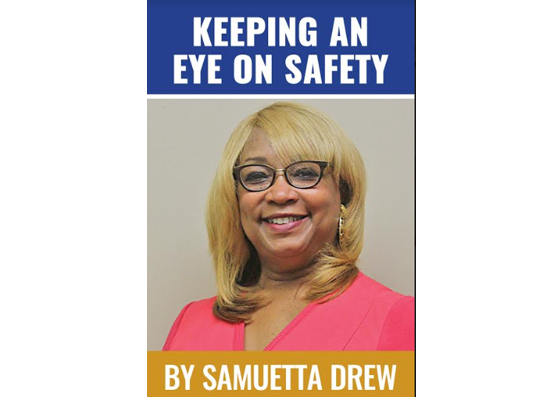By Samuetta Hill Drew
Scammers have multiple fraudulent ways to separate you from your money. Their desire is to steal your hard-earned dollars for their own personal gain. The Russian invasion into Ukraine this past February offered them a new bag of tricks to use, often using the same scam just with a different twist. This week’s safety article will focus on scammer’s use of cryptocurrency.
Data from the Federal Trade Commission show that consumers reported fraud losses of more than $5.8 billion in 2021, an increase of more than 70 percent from a year earlier. For one week of every year in March the state, federal and local enforcement agencies and consumer groups focus heavily on fraud as part of National Consumer Protection Week. They plan talks, webinars and blog posts with warnings and tips on how to avoid scams.
“Whenever there is war,” said Bogdan Botezatu, who runs threat research for Bitdefender, “there will be jackals trying to piggyback on people’s pain.” Bitdefender, a Romania-based cybersecurity company, began spotting phishing campaigns a day after the invasion began.
Scammers posing as rich Ukrainian businessmen looking to move money out of the country, is a twist on the infamous Nigerian prince scam. Some others pretend to be Ukrainians in need of donations, requesting payment in cryptocurrency and then they pocket the payment.
You do not have to shy away from giving to a charity with cryptocurrency. Many legitimate charities have been soliciting donations of cryptocurrency to help the people of Ukraine devastated by the Russian invasion. In fact, the Ukrainian government itself has been seeking donations of cryptocurrency to help them in the war cause.
Scammers are lurking. They posed as Ukrainian officials and set up a bogus cryptocurrency charity called Peaceful World. This phony cryptocurrency charity was discovered as a scam.
One way for consumers to spot a phony charity when trying to determine the legitimacy of its Ukrainian relief efforts is the requirement to submit your donation in cryptocurrency only. A legitimate site will offer you the opportunity to pay in more universally accepted currencies and methods like credit cards. It is important to note that once a transaction is made in cryptocurrency, the sender has little recourse to receive a refund. These types of transactions are irreversible.
Ukraine’s largest cryptocurrency exchange is Kuna. It accepts donations from Bitcoin, Ethereum, Tether, Litecoin, Dogecoin, and several others. To date, millions of dollars’ worth of cryptocurrency donations has been raised by the Ukrainian government.
To help Keep an Eye on Safety when making charitable cryptocurrency donations, vet the charity first.



